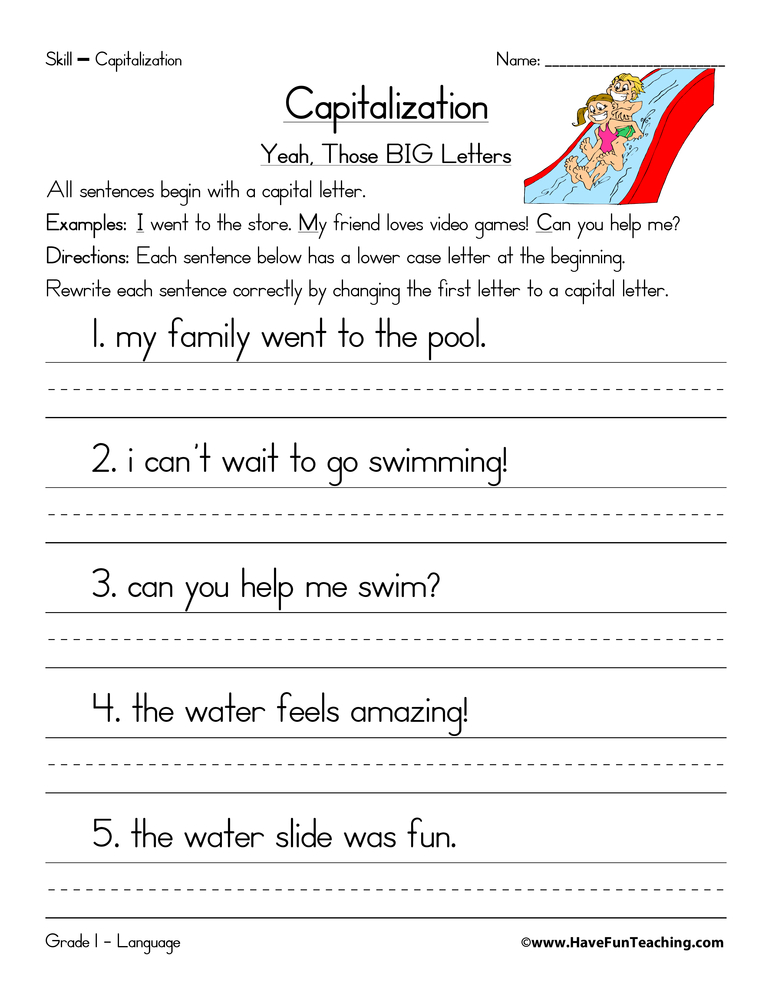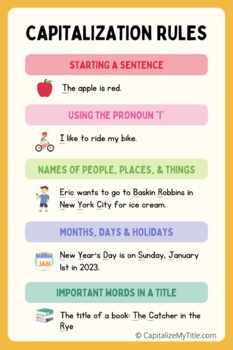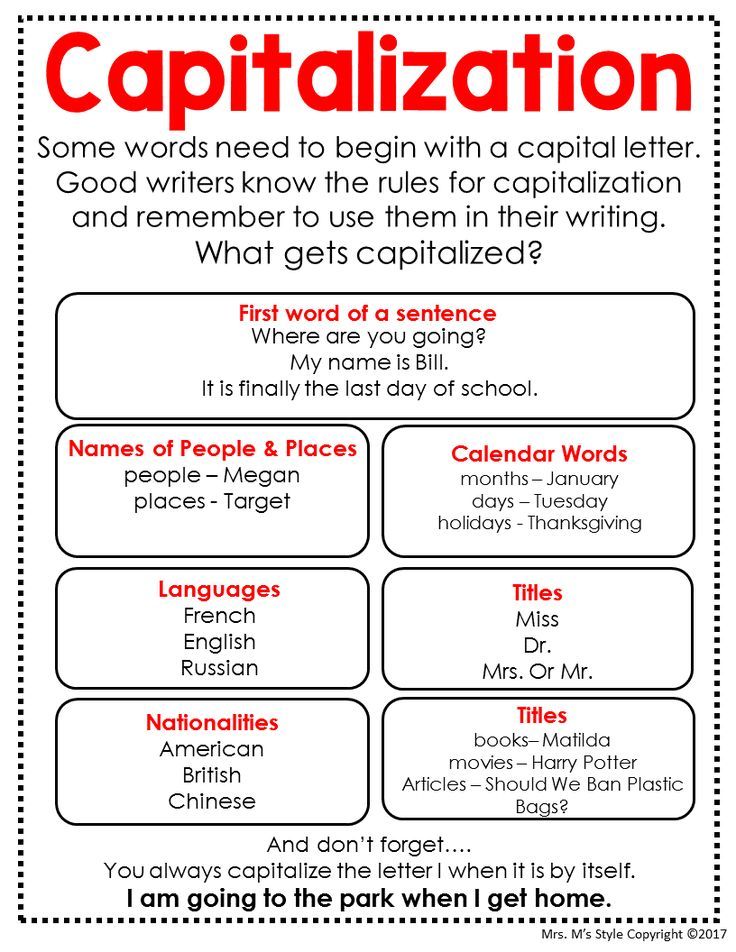5 Essential Rules for Capitalization Mastery

Capitalization in writing is not just a matter of style; it's a fundamental aspect of clear communication that can significantly impact the readability and professionalism of your work. Whether you're drafting an email, crafting a blog post, or writing a formal document, understanding and applying the rules of capitalization correctly is essential. Here are five crucial rules that will help you master capitalization, ensuring your writing remains clear, correct, and effective.
1. Proper Nouns Must Always Be Capitalized


Proper nouns refer to specific names of people, places, organizations, brands, events, and sometimes periods. Here's what you should know:
- Names: John Doe, Mary Smith
- Places: New York City, Eiffel Tower
- Organizations: Google, World Bank
- Events: The Super Bowl, Halloween
- Brands: Nike, Coca-Cola
- Months, Days, and Holidays: January, Thursday, Christmas
- Historical Periods: The Renaissance, The Industrial Revolution
👁 Note: Remember that while the names of countries, languages, and nationalities are capitalized, common nouns derived from these are not, e.g., "French" (language or nationality) but "french fries."
2. Capitalize the First Word of Sentences and Direct Quotes

Starting a sentence with a capital letter is one of the basic rules everyone learns in grade school, but there are nuances:
- Start every sentence with a capital letter: "The meeting starts at 9 a.m."
- If a quote constitutes a complete sentence, capitalize its first word: "She said, "The meeting starts at 9 a.m.""
- Within a longer quotation, capitalize the first word of a new sentence: "He noted, "This is important. We need to be on time.""
🛑 Note: In dialogue, if the quote is interrupted by an attribution (like "he said" or "she replied"), do not capitalize the continuation unless it starts a new sentence.
3. Titles of Works and Headings


When referring to books, articles, films, or other works, proper capitalization of titles enhances readability. Here's how:
| Capitalization Rule | Example |
|---|---|
| Capitalize the first word | To Kill a Mockingbird |
| Capitalize all other important words (nouns, pronouns, verbs, adjectives, adverbs) | The Great Gatsby |
| Lowercase articles (the, a, an), coordinating conjunctions (and, but, or, for, nor), and short prepositions (in, on, at) | The Cat in the Hat |

4. Do Not Capitalize Prepositions or Conjunctions Unless They Are the First or Last Word

Although this rule often confuses writers, it’s crucial for correct title capitalization:
- Prepositions: in, on, at, by, for, from, etc.
- Conjunctions: and, but, or, nor, yet, so, for
For example, in the title "Of Mice and Men," the preposition "of" is capitalized because it's the first word, but "and" is not.
5. Acronyms, Initialisms, and Abbreviations

With the ever-increasing use of acronyms and initialisms, knowing when to capitalize them is vital:
- Acronyms: NATO, NASA, LASER
- Initialisms: FBI, BBC, CEO
- Abbreviations: Dr., Mr., Ph.D.
💡 Note: If an abbreviation is normally followed by a period, such as "Dr.", capitalize the first letter if it's the start of a sentence or name, e.g., "Dr. Smith."
With these five essential rules, you can navigate the intricacies of capitalization with confidence. Proper capitalization not only polishes your writing but also signals to your reader that you've taken care in your work. Remember, while these rules provide a good framework, some style guides might have slight variations, especially in fields like journalism, academia, or legal writing. Always adapt your capitalization to the guidelines specific to your field or the document's style guide you're following for consistency and professionalism. By mastering these rules, you'll ensure that your written communication remains clear, accurate, and impactful, setting you apart in both personal and professional contexts.
When should I capitalize “Mom” or “Dad”?

+
“Mom” or “Dad” should be capitalized when they are used as a proper noun or replacing a name directly, e.g., “I asked Mom if I could go to the party.” If they are used in a general context, they should not be capitalized, e.g., “I saw a mom and her child at the park.”
Do I capitalize ‘teacher’ or ‘professor’?

+
No, unless it precedes a name as a title, e.g., “Professor Smith” or when used as a form of direct address, e.g., “Please, Teacher, may I be excused?”
How do I capitalize the name of a specific course or subject?

+
Capitalize course names when referring to a specific course, e.g., “English Literature 101.” For general subjects, use lowercase, e.g., “I’m studying biology.”
Should I capitalize the seasons?

+
Seasons are not capitalized unless they are part of a proper noun or at the beginning of a sentence, e.g., “The winter of 2022 was particularly cold.”
What about directions like ‘north’ or ‘south’?

+
Directions like ‘north’ or ‘south’ are capitalized when part of a region’s name, e.g., “the South,” but not when describing a direction, e.g., “we’re heading north.”



